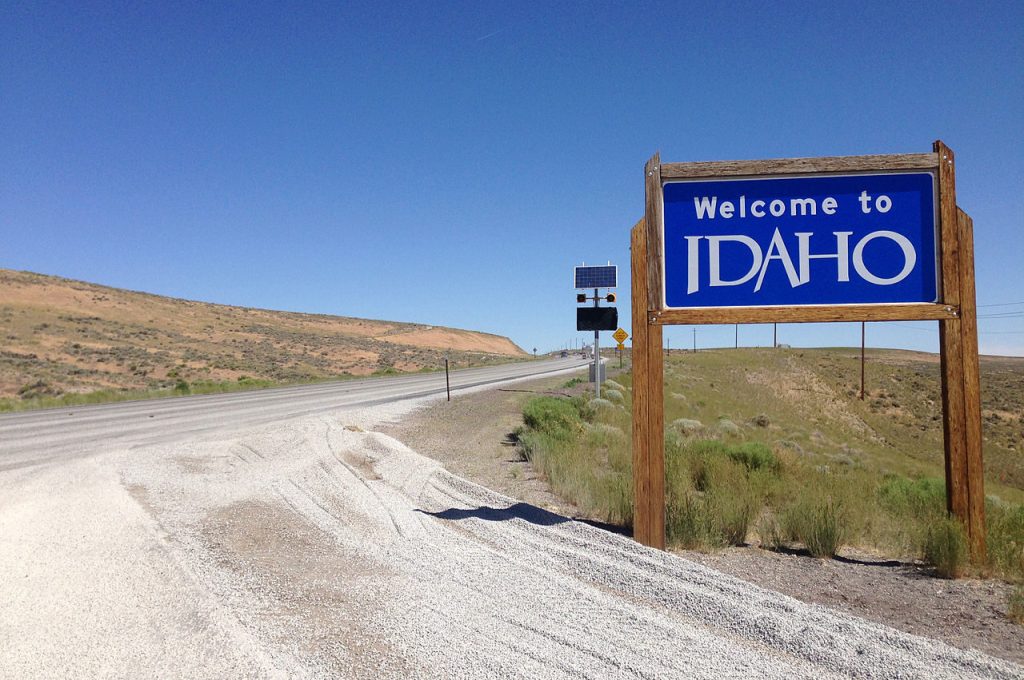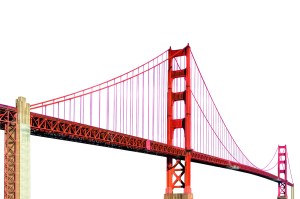For many conservatives in liberal states, 2020 was the year they finally upped sticks. Stringent lockdowns, Democratic commitments to defund the police and a bad-blooded presidential election combined to make a compelling case for relocation. Californians have fled to Texas; Florida has become a year-round home, and not just a seasonal destination, for a flock of north-eastern exiles.
In Oregon, conservatives are taking things a step further. Rather than moving themselves to a red state, they want to bring a red state to them by redrawing the borders of neighboring Idaho.
Campaigners for a Greater Idaho argue that there is an unbridgeable gap in values between the northwestern corner of Oregon — home to hyper-liberal Portland and 80 percent of the state’s population — and the state’s rural east and south, where conservative farming families have more in common with Idahoans than their fellow Oregonians. In May, five Oregon counties voted in favor of measures that would require local officials to discuss joining Idaho. That brings the total count of counties who support the move to seven out of 36.
In party-political terms, Oregon and Idaho could hardly be more different. Last year, Joe Biden won Oregon by 16 percentage points while Donald Trump won Idaho by 30. If the urban-rural divide is a defining feature of national politics, it is particularly stark in the Pacific Northwest, where some of America’s most progressive coastal cities abut a sparsely populated hinterland. Those differences were obvious enough before 2020, but the rolling violent riots in Portland and drastically different approaches to the pandemic have only made them harder to ignore.
Campaigners for Greater Idaho tout the state’s low tax rates and light-touch regulation. Oregon, they say, ‘refuses to protect citizens from criminals, rioters, wildfire arsonists, illegals and the homeless, but then infringes your right to defend your family with firearms’ whereas Idaho ‘enforces the law’. The campaign also emphasizes the advantages to Idaho beyond ‘the sense of purpose and satisfaction of freeing 1.2 million people from immoral blue-state laws’: the state would claim a share of the coastline, and a deep-water port; moving the border would ‘push Oregon’s drug laws farther from the county in Idaho where you live.’
Keaton Ems is a born-and-bred Oregonian and one of the campaigners pushing for his part of the state to join Idaho. He tells me, ‘I’m not excited to leave Oregon but it wasn’t my choice. Oregon left me. I’ve watched the state change right before my eyes. Oregon has gone.’
Ems and his Greater Idaho colleagues face formidable hurdles. The move would have to be approved by the legislatures of both Oregon and Idaho as well as the US Congress. But Ems is sanguine about these potentially insurmountable barriers. ‘It’s no more difficult than trying to flip seats, or do anything else in the state’, he says, pointing out that rural Oregonians ‘don’t get laws passed or find much representation’. Campaigners are eager to point out that Greater Idaho wouldn’t change the arithmetic on Capitol Hill: a smaller Oregon would still have two Democratic senators and a larger Idaho would still elect two Republicans. Oregon’s one Republican in the House of Representatives represents the part of Oregon that would become Idaho, meaning the party would simply be part of a different state’s delegation.
America’s northwestern corner, where states’ boundaries were drawn more recently than most of the rest of the country, has long been fertile ground for secessionist campaigns on both left and right. The Cascadia separatist movement has bubbled away on the political fringes for decades, campaigning for the creation of a sovereign state in parts of Oregon, Washington and Canada with a crunchy, environmental focus. Conservatives in rural Northern California want to break free from the yoke of coastal liberalism, band together with rural Oregonians to form the new state of Jefferson. What was Seattle’s infamous CHAZ — the police-free ‘autonomous zone’ established in the city at the height of last year’s unrest — if not a radical (and radically unsuccessful) act of secession?
The campaign to redraw Idaho’s borders is part of this tradition. But it is also one of many contemporary American political movements borne of a sense of impotence. Progressive Democrats are determined to rewrite the rules of the Senate because, they argue with a certain amount of melodrama, unless they do so they will never have the power to enact their policy agenda. In California, once solidly Republican but today deepest blue, conservatives who know that state-wide elections are a lost cause instead pour their energy into forlorn gubernatorial recall campaigns.
The creation of Greater Idaho might address the grievances of rural Oregonians, but it would only worsen the bigger problem of polarization that it is a reaction against. Americans live in communities that are increasingly politically homogeneous, with Republicans and Democrats more and more segregated from one another, the two tribes less likely to encounter one another in everyday life.
According to the logic of the Greater Idaho movement, borders should be redrawn to reflect that reality, making red states redder and blue states bluer. That might mean Americans are more likely to live in a state whose elected officials reflect their values, but it would also reduce the incentives for compromise, empower both parties’ bases and accelerate the push driving Americans further apart. An America that is no more than a collection of one-party states is not likely to be a healthy body politic.
Meanwhile, Ems says the frustrated campaigners for a Greater Idaho are staying put, even if their movement doesn’t succeed. ‘We have ties to the land we live on’, he says. ‘We’re proud to be Americans, we don’t want to start a new state and we’re not trying to start a new country. We’re just trying to find a jurisdiction that is responsive to rural citizens’.
Oliver Wiseman is based in Washington DC and writes on US politics for Politico magazine, City Journal, CapX and the Dispatch.


















